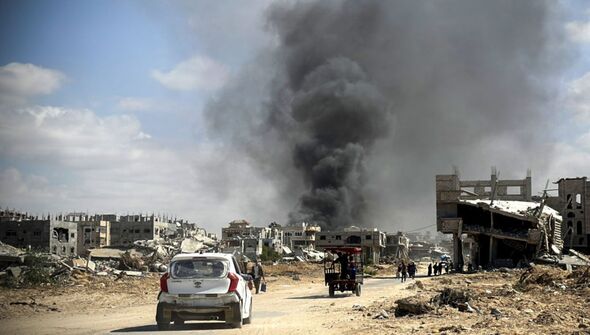It’s hard to believe that it was almost exactly a year ago when the Hamas terrorist group launched its deadly attacks into Israel from its lair in the Gaza Strip. Unprecedented in its barbarity and ferocity, it set the smouldering embers of a years-old conflict alight again.
Now is a good time to look back and see what, if anything, has been achieved by Hamas’ twisted strategy. And the short answer is not very much at all; if anything, they have managed to set the clock backwards.
It’s quite difficult to get a reasonable answer to what exactly they hoped to achieve, apart from to inflict murder, mayhem, and worse on the Israelis. Let’s look at some of the major issues.
First of all Gaza. The Hamas action on 7 October last year has basically brought death and destruction upon itself and the civilian population as well as the Israelis. Israel’s casualties are in the thousands, those of the Palestinians are in the tens of thousands.
Hamas will not differentiate between deaths of its fighters and those of ordinary civilians for obvious reasons. But it’s clear that its leadership has been eliminated, together with many of its fighters.
Some 60 percent of buildings in the Strip have either been destroyed or damaged in some way; essentially Gaza has been levelled during the IDF’s operations there and much of the population has been displaced into basic camps with limited facilities. They have nowhere else to go; even surrounding Arab countries like Egypt don’t want them. And it will take years to rebuild Gaza, if indeed that ever happens.
Now let’s look at Lebanon. For some reason best known to itself Hezbollah decided to join the fray on 8 October last year by renewing its rocket offensive into northern Israel in “solidarity” with Hamas and the Palestinian cause.
What a mistake that has turned out to be. It too has seen most of its leaders vaporised by Israeli air strikes and its fighters on the ground now being tackled by IDF troops moving into southern Lebanon. Again, large numbers of civilians have suffered and been displaced. Some Syrian refugees sheltering in Lebanon to escape the conflict in Syria are now
heading back to where they came from, and nowhere seems to be safe. We should also mention the Houthi rebels in Yemen, who have thrown in their lot with the anti-Israel alliance and lobbed drones and missiles into Israel and also attempted, partially successfully, to disrupt international shipping in the Red Sea.
Their reward has been to be battered in their strongholds by US and British (and others) air strikes for their trouble. The eminence grise behind all of this is of course Iran, sworn enemy of the USA and a state dedicated to the eradication of Israel. They are the ones behind the onslaught of the so-called Axis of Resistance, its funder and provider of arms and training.
Iran has had the temerity to launch missiles at Israel not once but twice over the past year, attacks which were failures. It now cowers in anticipation of the next Israeli response, with the knowledge that its skies are easily penetrable by the IDF air force and its security and state apparatus riddled at every level with informants and foreign agents.
Essentially Iran is an open book to the Israelis and they will take full advantage of that. Finally we need to look at Israel itself, bruised and battered physically and mentally but still there proud and defiant in the face of its enemies.
Backed by the insurance policy that is the USA, its staunchest ally, there is no real threat to its existence. If anything it is stronger now than a year ago.
Those are some of the major factors against which we should judge the success or otherwise of the Hamas assault on 7 October last year. And by any measure it has proved to be an abject failure.
Negotiation and compromise, not war, is the only way to cure the festering sore that is the Middle East. But that is not yet in sight.
Lt Col Stuart Crawford is a political and defence commentator and former Army officer. Sign up for his podcasts and newsletters at www.DefenceReview.uk
